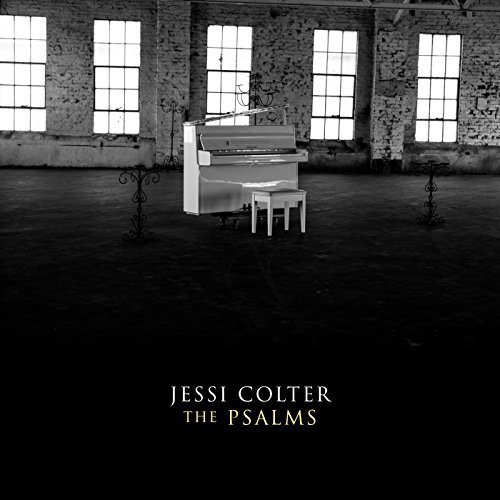Artist: Jessi Colter
Album: The Psalms
Label: Legacy Recordings
Release Date: 03/24/2017

Anyone who has ever seen Jessi Colter live knows she is prone to breaking out into praise and worship at times, like she just can’t help herself. And, though she is one of the first “Outlaw Country” women, her latest album in ten years, The Psalms, is a pure, reasoned worship piece. The record is an intimate portrait of a spiritually mature woman spending time with her Lord. It is for God first, for herself second, and then for those who want to join Colter in meditating on the randomly selected passages.
The Psalms came about after producer, Lenny Kaye, found Colter in her Nashville living room expressing the melodies set to various scripture as they came to her. It was 1995 then and Kaye was working on Waylon Jennings’ (Colter’s husband) autobiography at the time. Colter’s vocals and piano weren’t recorded until 2007 and then delicately decorated over the past ten years with other musicians chosen specifically for the project. The final product, with its many musical layers, was released last week.
The Psalms are quoted in the New Testament more than any other book of the Old Testament. According to Western Christian and Jewish traditions, they are a set of 150 Divinely Inspired lyrical poems. Authorship varies over a period of 1,000 years, with the earliest by Moses and the majority (73) by David. Colter still uses the antiquated King James Version for her lyrics, most probably because that is what she grew up on in her strict Christian home.
Colter opens the album in praise with Ps. 150, “Praise Ye The Lord,” helping listeners prepare for what is to come. Ushering in the Spirit with instrumental tension and climactic cymbals, the music also supports the lyrics of this poem well. She then follows up with a Psalm of thanksgiving, “Unto Thee,” (Ps. 75). A heavy, gospel organ and a slow tempo allow for contemplative gratitude before spinning us into the powerful Ps. 114, “And The Mountains Skip Like Rams,” which has a stormy, woeful four-minute intro. The Arco bass by Paul Dugan brings a sense of powerful mystery while the harp and mandolin keep the intrigue. Meant as a celebratory song of praise, 114 is sometimes sung at the close of a Passover supper and acts as a reminder that God brought His people out of slavery, set His Tabernacle among them, divided the sea before them, came to them as the earth shook on Mt. Sinai and gave them water from a rock.
Colter’s rendition of Ps. 24, “Who is This King of Glory,” is the most surprising on the album and plays like a marching anthem. The song’s lyrics are used in many worship songs but Colter makes them fit for a nation of faithful soldiers, a generation seeking the face of God. She also includes Ps. 151, “King David’s Last Psalm,” which tells the story of his youth as a shepherd boy and then his rise to king. But, by far, the most interesting song on the album is Ps. 73, “Like a Beast.” Colter exposes her Pentecostal roots without an ounce of shame, as someone who was born for worship. She builds momentum like an old apostolic chant, making room for the gifts of the Paraclete. The poem reminds readers not to covet the prosperity of the wicked as God honors those with a clean heart. Many people of the time were tempted to cast off their faith in exchange for profit, a timeless story, and Colter pushes the lyrics forward with unwavering conviction as a woman with great understanding.
“The Lord is My Shepherd,” Ps. 23, starts to close the album like a sweet lullaby. The song is one of rest and restoration, which is made even sweeter with Kaye’s addition of Pedal Steel. The final song, Ps. 72, “Arise O King Of Old” lyrically speaks of God coming like rain, so her piano matches the feeling. It’s a graceful close to a beautiful piece of art, which is Colter’s The Psalms.
Luke 6:45 reminds us that what comes from our mouth is an overflow of our heart. Prayer and worship is the most intimate thing you can share, so to have Colter put this on record for all to hear shows her heart and what is most important to her in this life. I would easily compare this album to the private worship recorded by the late and gifted singer-songwriter, Rich Mulllins, found on his posthumous album “The Jesus Record.”
—Bylle Breaux







Be the first to comment!